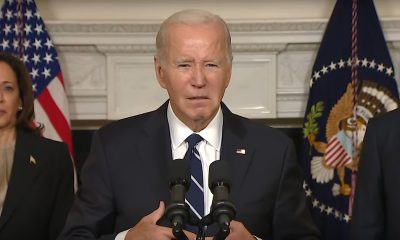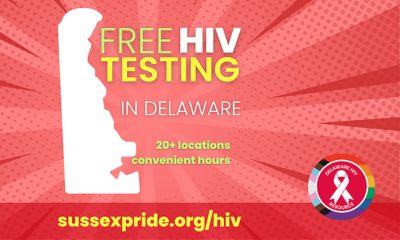News
Defense bill contains gay-related provisions
Expanded conscience protections; sodomy ban repealed in military code
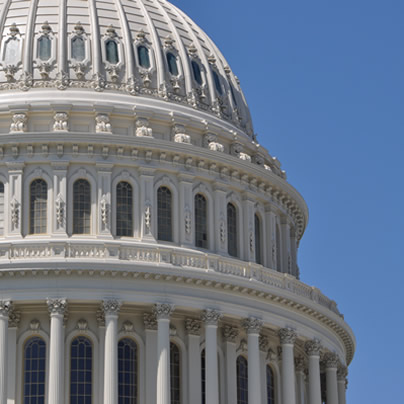
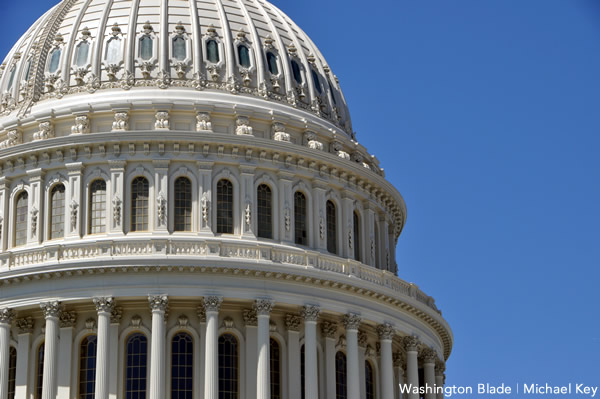
The defense authorization passed by Congress includes gay-related provisions. (Washington Blade file photo by Michael Key)
The U.S. Congress passed major defense budget legislation on Thursday that includes provisions related to the LGBT community — both good and bad — in the aftermath of “Don’t Ask, Don’t Tell.”
The fiscal year 2014 defense authorization bill contains an expansion of the conscience protections for service members under current law, but also repeals the sodomy ban under military law and calls for a report on HIV policy within the U.S. military.
The Senate approved late Thursday by a vote of 84-15 a $630 billion version of the bill, which primarily reauthorizes pay for troops and funding for military programs. The House already approved the legislation, so it’s heading to President Obama’s desk.
Sen. Carl Levin (D-Mich.), the retiring chair of the Senate Armed Services Committee, issued a statement upon passage of the legislation praising the bipartisan nature of its approval.
“Tonight we passed legislation that is good for our national security, and for the men and women who protect us and their families,” Levin said. “The Senate vote is a strong bipartisan statement that, despite our differences, we can come together and accomplish important business for the good of the country.”
Under Section 532, the legislation contains an expansion of the conscience provision that was enacted as part of last year’s defense authorization bill. Under this provision, the armed services shall accommodate service members’ expression of their beliefs — unless it would have an adverse impact on military readiness or good order and discipline.
The language was inserted by Sen. Mike Lee (R-Utah) during the Senate Armed Services Committee markup of the fiscal year 2014 defense authorization. It’s along the lines of a conscience amendment submitted by Rep. Mike Fleming (R-La.) during the House Armed Services Committee markup of its version of the bill, but not quite as strong. LGBT advocates decried the House version of the amendment as a means to enable service members to discriminate and harass their gay colleagues.
A related provision, Section 533, instructs the Inspector General of the Department of Defense to submit a report to Congress no longer than 18 months after the bill is signed into law on incidents of adverse personnel actions or discrimination against troops based on their moral beliefs.
Tony Perkins, president of the anti-gay Family Research Council, praised Congress in a statement over inclusion of the provision, which he said is a means for “protecting the right of service members to freely practice and express their faith.”
“Congress acted appropriately after investigating numerous incidents involving service members who have had their careers threatened, and harassed simply for practicing their faith in a real and tangible way,” Perkins said. “The religious liberty violations have grown so frequent in recent years leading many service members to report being too fearful to share their faith.”
After the enactment of the earlier conscience provision under the previous defense authorization bill, Obama said the Pentagon assured him the language wouldn’t change how the armed forces operated. The Defense Department didn’t respond to the Washington Blade’s request for comment on how implementation will work this time around.
Ian Thompson, legislative representative of the American Civil Liberties Union, said the inclusion of the conscience provision in the defense authorization bill was unnecessary.
“The ACLU believes that the Constitution and existing laws and regulations already offer all members of the Armed Forces, including chaplains, strong protections for their religious beliefs,” Thompson said.
Fred Sainz, the Human Rights Campaign’s vice president of communications, expressed a similar sentiment that the provision is unnecessary because service members’ religious views are already protected under current policy.
“Although this amendment is unnecessary, Congress dropped a different version adopted by the House of Representatives that would have been truly harmful, requiring the military to accommodate beliefs, actions, and speech of service members unless the armed forces could prove ‘actual harm’ to good order and discipline,” Sainz said.
But the legislation as a whole also contains positive language sought by LGBT advocates in the aftermath of “Don’t Ask, Don’t Tell” repeal. Among these provisions is Section 1707 — repeal of the ban on sodomy for gay and straight service members under Article 125 of the Uniform Code of Military Justice. The provision was added by Sen. Mark Udall (D-Colo.).
In its place, the legislation inserts into military code a provision making “unnatural carnal copulation” with another person “by force” subject to a court martial. The provision also reasserts the ban on bestiality in military code.
Although the sodomy ban was rarely enforced for service members engaging in consensual sex in private, it has remained on the books and been used to prosecute troops in combination with additional infractions.
ACLU’s Thompson said the repeal of the sodomy ban is an important step forward to guarantee the liberty of service members — gay and straight — in the aftermath of “Don’t Ask, Don’t Tell” repeal.
“This is a welcome and overdue step forward that respects the liberty and privacy of all service members, and is especially significant for gay and lesbian service members whose intimate relationships, including marriages, were labeled a violation of military criminal law,” Thompson said. “Removing this stigmatizing and discriminatory provision from the Uniform Code of Military Justice advances the promise of equal treatment for all military personnel.”
Additionally, under Section 572, the legislation directs the Pentagon to submit a report to Congress no later than 180 days after the bill is signed into law on personnel policies regarding service members with HIV or Hepatitis B. The bill directs the Pentagon to include a description of the policies as well as related retention, deployment and disciplinary actions as well as an assessment of whether these policies are evidence-based and medically accurate.
According to the LGBT military group SPART*A, service members become non-deployable once they’re discovered to have HIV; can’t commission as an officer or warrant officer; can’t fly aircraft or work in any jobs requiring a flight physical; are restricted to stateside duty assignments (with the exception of the Navy); and are not eligible for special schools such as Ranger, Special Forces or other special ops jobs.
Thompson said the provision is welcome because it will examine whether the military’s current HIV policy is appropriate or outdated.
“This review is welcome and overdue becausemany of our laws, policies, and regulations regarding HIV were written at a time when we knew far less about the routes and risks of HIV transmission, and prior to the development of effective HIV treatment,” Thompson said.
Another important non-LGBT provision in the defense authorization bill replaces foreign transfer restrictions in current law to enable President Obama to close the detention facility in Guantanamo Bay. The bill also seeks to aid victims of sexual assault in the military by criminalizing retaliation against victims who report it, preventing military commanders from overturning jury convictions and protecting victims of sexual assault from abusive treatment during pre-trial proceedings.
The LGBT group Freedom to Work had said insertion of the Employment Non-Discrimination Act into the defense authorization bill could be a viable way to pass the measure. However, prior to ENDA’s passage in the Senate, Senate Majority Leader Harry Reid (D-Nev.) told the Washington Blade such inclusion wasn’t a viable option because he didn’t know if the larger defense bill would pass.
On Thursday, White House Press Secretary Jay Carney issued a statement saying the administration has concerns with certain aspects of the legislation, but supports it overall.
“Although the bill includes a number of provisions that restrict or limit the Defense Department’s ability to align military capabilities and force structure with the President’s strategy and implement certain efficiencies, overall the Administration is pleased with the modifications and improvements contained in the bill that address most of the Administration’s significant objections with earlier versions regarding these issues,” Carney said. “The Administration supports passage of the legislation.”
Politics
HRC slams White House over position opposing gender affirming surgeries for minors
‘Biden administration is flat wrong on this’
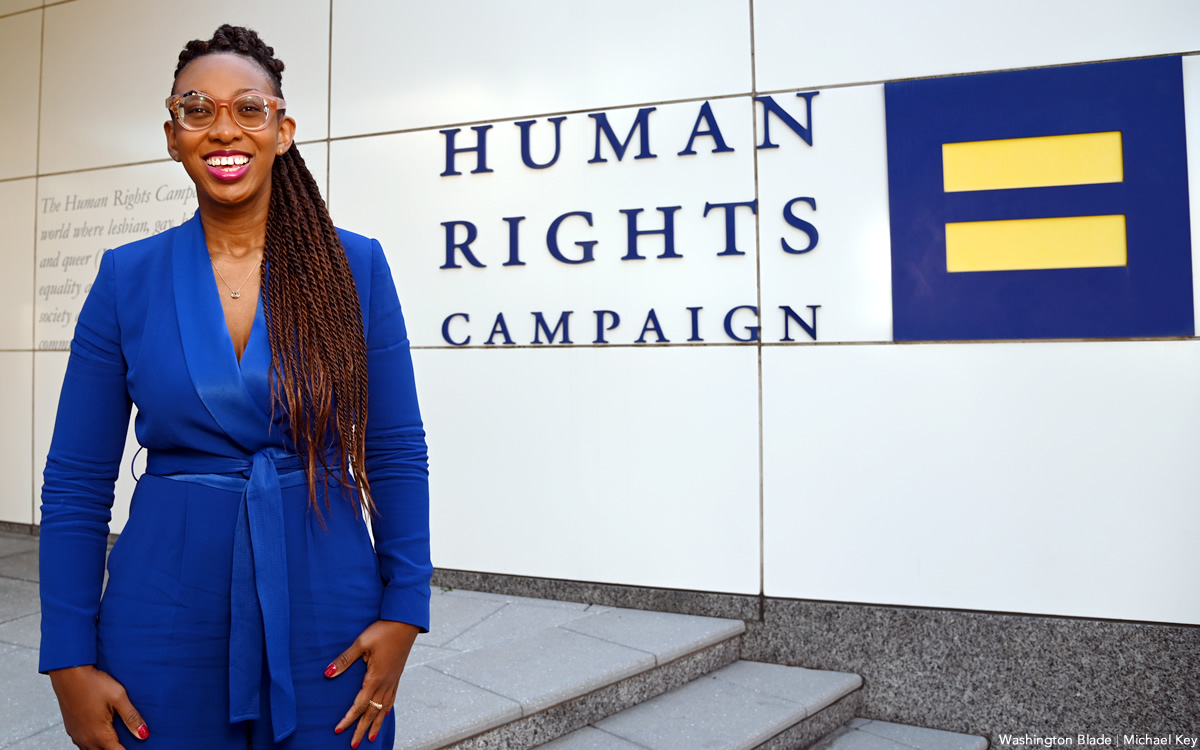
Human Rights Campaign President Kelley Robinson issued a strong rebuke on Tuesday of the Biden-Harris administration’s position opposing gender affirming surgeries for minors.
The New York Times reported on June 28 that the White House, which broadly supports making medical interventions available for transgender youth, had expressed opposition to surgeries for patients under 18, having previously declined to take a specific position on the question.
“Health care decisions for young people belong between a patient, their family, and their health care provider. Trans youth are no exception,” Robinson responded.
“The Biden administration is flat wrong on this. It’s wrong on the science and wrong on the substance. It’s also inconsistent with other steps the administration has taken to support transgender youth. The Biden administration, and every elected official, need to leave these decisions to families, doctors and patients—where they belong,” she added. “Although transgender young people make up an extremely small percentage of youth in this country, the care they receive is based on decades of clinical research and is backed by every major medical association in the U.S. representing over 1.3 million doctors.”
Robinson said the “administration has committed to fight any ban on healthcare for transgender youth and must continue this without hesitation—the entire community is watching.”
“No parent should ever be put in the position where they and their doctor agree on one course of action, supported by the overwhelming majority of medical experts, but the government forbids it,” she added.
HRC is a prominent backer of Biden’s 2024 reelection campaign, having pledged $15 million to support efforts in six battleground states. The organization has a strong relationship with the White House, with the president and first lady headlining last year’s National Dinner.
A White House spokesperson declined to respond to Robinson’s statement.
Campaign for Southern Equality President Allison Scott also issued a statement.
“This is a cowardly statement from an administration that promised to support transgender people. It is a troubling concession to the right-wing assault on transgender Americans, falling for their false narratives about surgical care and betraying a commitment to equality and trust in the medical community,” said Scott.
“Let’s be very, very clear: Government has no business inserting itself into private medical decisions that should be exclusively between patients, their providers, and the patients’ parent or guardian,” Scott added.
“It is dangerous to begin endorsing categorical bans or limits on healthcare, and there is no justification for restricting transgender youth’s access to the very same care that many cisgender youth receive every year — that’s literally the definition of discrimination,” Scott concluded. “We demand the Biden administration retract this thoughtless statement and work to undo its damage.”
Virginia
Parades, community events held to mark Pride Month in Va.
Upwards of 30,000 people attended PrideFest in Norfolk on June 22

Activists across Virginia last month held a series of events to mark Pride Month.
Hampton Roads Pride, a volunteer-run organization founded in 1997, held 37 different Pride events throughout the region in June.
Their biggest event, PrideFest, which is part of their larger three day event, Pride Weekend, celebrated its 36th anniversary on June 22. Pride Weekend took place from June 21-23 and began with a block party at NorVa in Norfolk.
PrideFest took place at Town Point Park, and an estimated 30,000 people attended. More than 70 venders participated, while Todrick Hall and Mariah Counts are among those who performed.
Another PrideFest event with a DJ in the afternoon and live music at night took place in Virginia Beach on June 23. Congressman Bobby Scott and U.S. Sen. Tim Kaine (D-Va.) are among those who attended Pride events in Suffolk on June 30.
Norfolk Mayor Kenneth Alexander, along with members of the Norfolk and Virginia Beach City Councils, also attended the Pride events in their respective cities. Jamar Walker, the first openly gay federal judge in Virginia, also took part.
“You know people all throughout Pride Month, at all of our various events, tell me all kinds of stories about their own experiences and the past of this community … and some of our older folks especially, remember when we couldn’t have this,” Hampton Roads Pride President Jeff Ryder told the Washington Blade on Monday during a telephone interview.
“It was a great year,” he added. “It was a big achievement for us to have unique celebrations in each of our seven communities. Each of these cities is so different from one another, but to be able to create a Pride celebration that’s unique in each of those places was really great, and I think really well received by folks who may not have felt represented previously. We’re always trying to do better, to embrace every aspect of our community, and take a big step forward there this year.”
State Dels. Adele McClure (D-Arlington County) and Alfonso Lopez (D-Arlington County) are among those who spoke at Arlington Pride that took place at Long Bridge Park on June 29. The Fredericksburg Pride march and festival took place the same day at Riverfront Park in Fredericksburg.
Republican Virginia Gov. Glenn Youngkin on June 10 hosted a Pride Month reception in Richmond.
Youngkin in previous years has hosted Pride Month receptions, even though Equality Virginia and other advocacy groups have criticized him for supporting anti-LGBTQ bills.
The Republican governor in March signed a bill that codified marriage equality in Virginia. Youngkin last month vetoed a measure that would have expanded the definition of bullying in the state.
U.S. Supreme Court
Concern over marriage equality in US grows two decades after first Mass. same-sex weddings
Gay and lesbian couples began to marry in Bay State in 2004

Two decades after Massachusetts became the first state to legalize same-sex marriage, a new study reveals both significant progress and ongoing challenges for married LGBTQ couples in the U.S., with a growing sense of insecurity about the future of their rights.
The Williams Institute at UCLA School of Law surveyed 484 married same-sex couples from all 50 states and D.C. The study, released Monday, marks the 20th anniversary of legal same-sex marriage in the U.S.
Researchers found that 93 percent of respondents cited love as a primary reason for marrying, with 75 percent also mentioning legal protections. Over 83 percent reported positive changes in their sense of security, and 74.6 percent noted improved life satisfaction since marrying.
However, the study also highlighted persistent discrimination and growing concerns about the future. About 11 percent of couples who had a wedding reported facing prejudice during the planning process.
Alarmingly, nearly 80 percent of respondents expressed concern about the potential overturning of the 2015 Obergefell v. Hodges decision, which legalized same-sex marriage nationwide. This anxiety has been exacerbated by initiatives like Project 2025, a conservative policy blueprint that some fear could roll back LGBTQ rights if implemented.
The possibility of a former President Donald Trump victory in the upcoming election has further intensified these concerns. Many respondents cited Trump’s previous U.S. Supreme Court appointments and his statements on LGBTQ issues as reasons for their apprehension. One participant stated, “The thought of another Trump presidency keeps me up at night. We’ve come so far, but it feels like our rights could be stripped away at any moment.”
The current political climate has 29 percent of respondents considering moving to another state, with 52.9 percent citing socio-political concerns as a primary reason. This reflects a growing sense of insecurity among LGBTQ couples about their rights and freedoms.
Brad Sears, founding executive director of the Williams Institute, noted, “The data clearly show that marriage equality has had a profound positive impact on same-sex couples and their families. However, it also reveals ongoing challenges and serious concerns about the future of these rights in light of current political trends and the upcoming election.”
Christy Mallory, legal director at the Williams Institute and lead author of the study, added, “This research provides crucial insights into the lived experiences of same-sex couples two decades after marriage equality began in the U.S. The high level of concern about potential loss of rights underscores the continued importance of legal protections and public support for LGBTQ+ equality.”
The study found that 30 percent of surveyed couples have children, with 58.1 percent of those parents reporting that marriage provided more stability for their families. However, many of these families now worry about the security of their legal status in the face of potential policy changes and shifting political landscapes.
As the nation reflects on two decades of marriage equality, the study underscores both the transformative power of legal recognition and the ongoing need for vigilance in protecting LGBTQ+ rights. The findings highlight the complex reality faced by same-sex couples in America today: Celebrating hard-won progress while grappling with uncertainty about the future, particularly in light of upcoming political events and potential shifts in leadership.
-

 Canada1 day ago
Canada1 day agoToronto Pride parade cancelled after pro-Palestinian protesters disrupt it
-

 Politics5 days ago
Politics5 days agoLGBTQ issues absent from Trump-Biden debate
-

 Theater4 days ago
Theater4 days agoStephen Mark Lukas makes sublime turn in ‘Funny Girl’
-

 Baltimore3 days ago
Baltimore3 days agoDespite record crowds, Baltimore Pride’s LGBTQ critics say organizers dropped the ball



